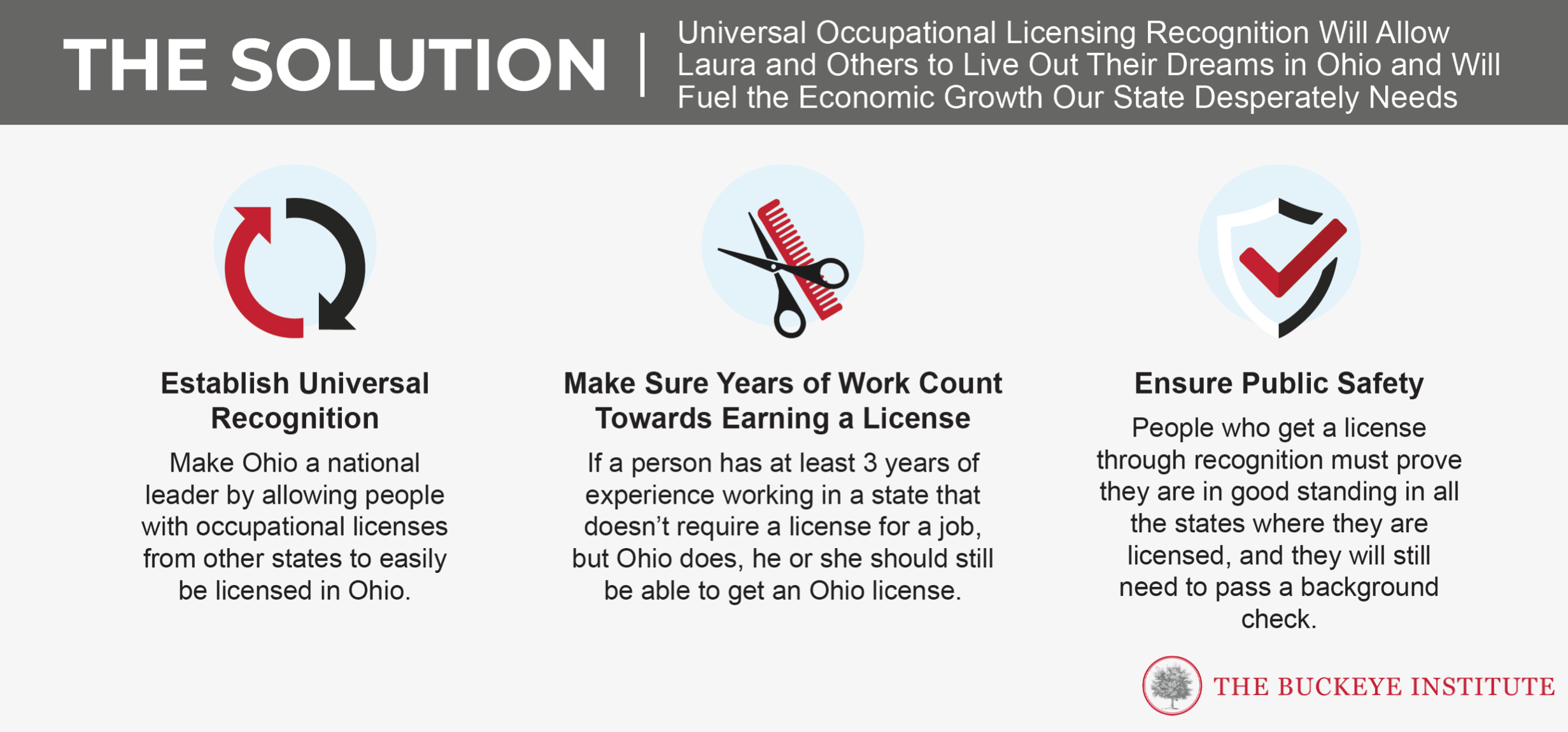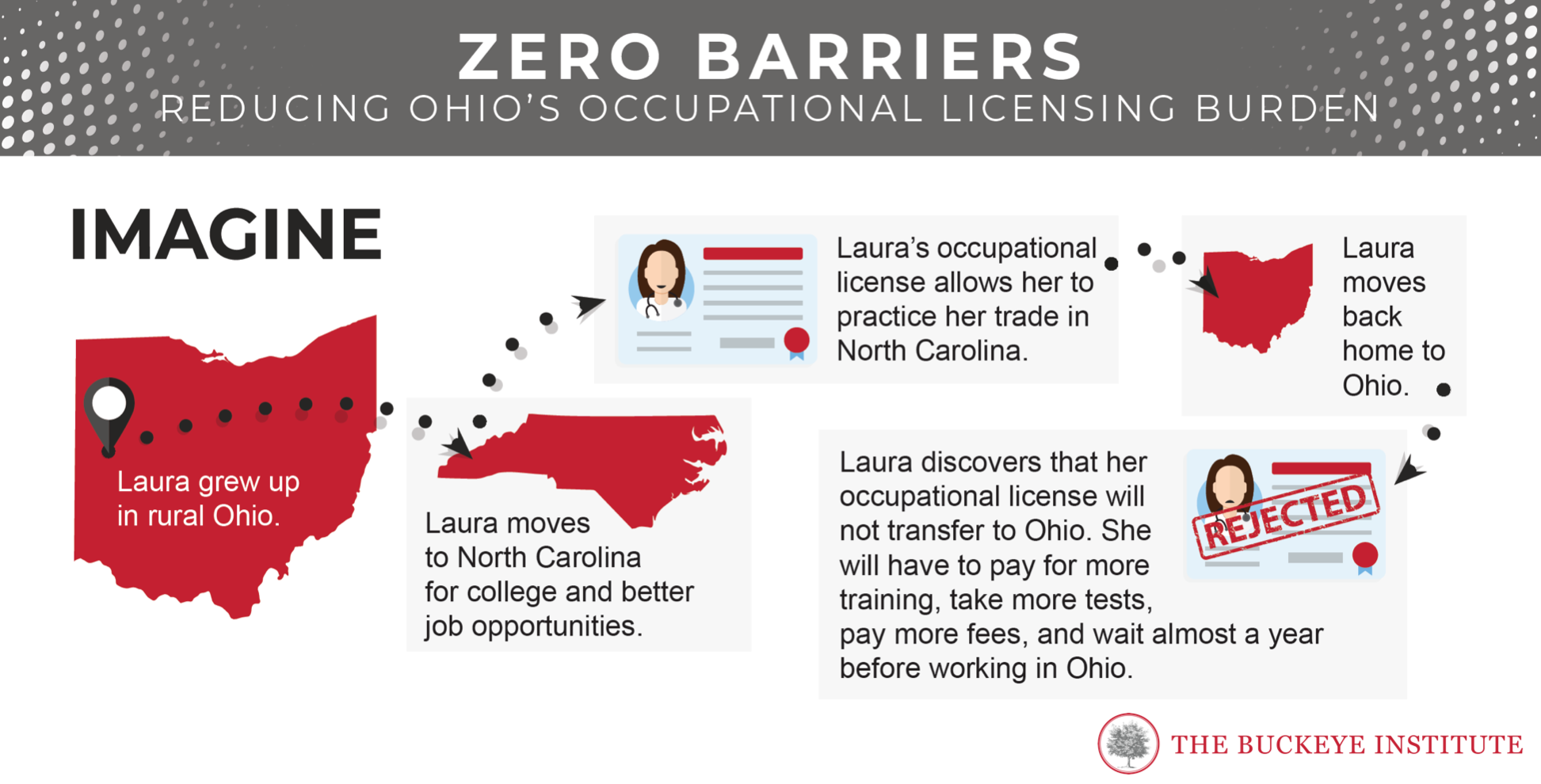The Buckeye Institute: Universal Occupational Licensing Reciprocity Can Fix Ohio’s Broken System
Jan 21, 2020Columbus, OH – A new policy brief, Universal Licensing Reciprocity: How to Welcome Workers to Ohio, released Tuesday by The Buckeye Institute, outlines why Ohio should adopt universal occupational licensing reciprocity, which the Ohio General Assembly is considering in House Bill 432 and Senate Bill 246.
“Opening the door to universal licensing reciprocity will make Ohio more attractive to already-licensed professionals, eliminate superfluous and expensive burdens on newcomers, and continue the ongoing effort to end the ‘Mother-may-I?’ approach to earning a living in Ohio,” Greg R. Lawson, a research fellow at The Buckeye Institute, wrote in the paper. “Unfortunately, minor state-imposed differences in education or training requirements often force newcomers to pay expensive fees or take expensive, extraneous classes that do not make them any more qualified for or capable of doing their jobs. Universal occupational licensing reciprocity can put an end to this broken system.”
FACT SHEET: Zero Barriers: Reducing Ohio’s Occupational Licensing Burden
In the paper, Lawson outlines four key reasons to adopt universal occupational licensing reciprocity:
- Occupational Licensing Hurts Workers. In addition to other research, Lawson noted that Professor Morris Kleiner, the AFL-CIO chair in labor policy at the University of Minnesota’s Humphrey School of Public Affairs, has estimated that “Ohio lost more than 67,000 total jobs—equal to Ohio’s average annual job growth—due to occupational licensing.”
- Occupational Licensing Makes Cross-State Mobility More Difficult. Highlighting the story of Jennifer McClellan, who was a licensed massage therapist in Minnesota but was unable to work in Ohio because she did not have the exact number of classroom hours that Ohio requires, Lawson pointed out that “even relatively minor licensing differences” from state to state can keep qualified professionals from working.
- Regional Reciprocity Agreements Don’t Solve the Problem. Lawson pointed out that while “many states offer reciprocity for certain occupational licenses…such agreements…do not go far enough.”
- There are New Paths to Follow. In April 2019, Arizona adopted universal occupational licensing reciprocity, eliminating any duplicative training requirements while still requiring background checks and some testing on state-specific content. Lawson noted that this policy has “established a clear, easy-to-understand policy for out-of-state licensed professionals.”

The Buckeye Institute has long recognized the injustice of occupational licensing requirements that allow powerful entrenched special interests to prosper while making it more difficult and more expensive for people to start new professions or become eligible for promotions. Buckeye’s research formed the basis for Senate Bill 255, which moved Ohio from being one of the worst states on occupational licensing to one of the nation’s best. And, once signed into law, the Buckeye-inspired Senate Bill 7, will make it easier for spouses of transferred military personnel to be licensed and continue working in Ohio.
# # #

